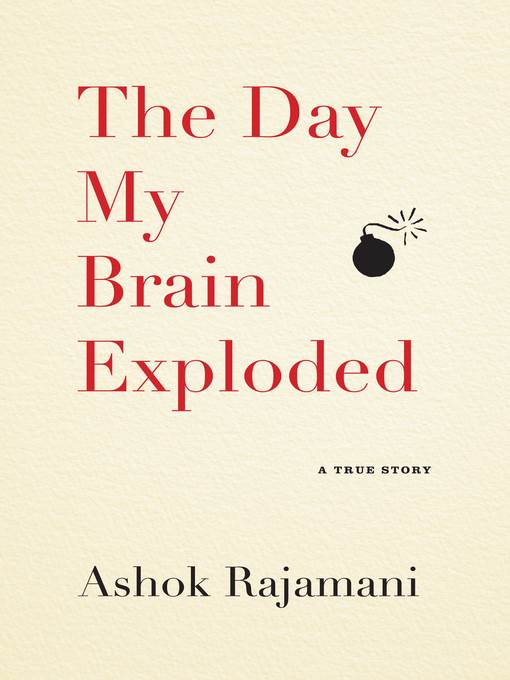
The Day My Brain Exploded
A True Story
کتاب های مرتبط
- اطلاعات
- نقد و بررسی
- دیدگاه کاربران
نقد و بررسی

October 22, 2012
First-time author Rajamani delivers a fascinating look at his life and his recovery as a brain-injury patient that is both heartbreaking and uplifting. In 2000, Rajamani was a 25-year-old first-generation Indian-American living the dream as well as living on the edge: a rising star in the competitive world of New York City public relations as well as a full-blown alcoholic who arrives “volcanically trashed” for a major job interview and is still “hired on the spot.” Only a week after he is hired, his life changes entirely after he suffers a massive brain hemorrhage caused by AVM, or arteriovenous malformation—a congenital birth defect in which “a tangle of veins and arteries hidden within the brain” suddenly bursts, causing the brain to bleed and flooding the head with septic fluid. Rajamani expertly details his injury (“My brain had become, simply, a liquid mess”) and its treatment, describing procedures such as a ventriculostomy, “an operation in which they drilled holes in the skull and insert tiny plastic tubes, also called ventrics, to drain the fluid.” Rajamani describes how he recovers with the help of his family and an extended support group of brain-injury survivors, and discovers that “even though I face epilepsy and multiple functional defects in my sight, hearing and memory, I’ve become more at peace, finding a new kind of harmony with the world.”

January 15, 2013
Barely surviving a cerebral hemorrhage gives the author a new perspective on life. Set to attend his brother's wedding, Rajamani experienced a subarachnoid intracranial cerebral hemorrhage while masturbating before the ceremony. This provides the sole unexpected moment of this memoir, which traffics heavily in cliches and a conversational tone that disserves the challenges of recovery. The narrative jumps back and forth, juxtaposing anecdotes about growing up as a bookish Indian-American with chapters on the days and weeks following the hemorrhage. Taken individually, the chapters are hit-or-miss; while some tie back into the challenges of recovery, others provide unrelated background on the author's childhood, adolescence and his fast climb up the corporate ladder. One would guess that Rajamani is sharing his largely unfettered rise to business success to illustrate the crashing loss of his world after the hemorrhage. Unfortunately, the writing never goes to any depth in reflecting on the changes brought about. Rajamani presents the anecdotes of his life as one might share personal stories to an impromptu gathering of co-workers at a new job--guardedly, always looking to pose the events in the best possible light. The interesting details and reflections largely fall through the cracks, leaving readers with little to reflect upon beyond a general appreciation of the resilience of the human brain. Dramatic story, dull delivery.
COPYRIGHT(2013) Kirkus Reviews, ALL RIGHTS RESERVED.

December 1, 2012
More commonly known as strokes, cerebrovascular accidentsor CVAsare an all-too-frequent occurrence among our nation's elderly population. About 87 percent of these are ischemic strokes resulting from sudden blood clots in the brain, whereas the other 13 percent are classified as hemorrhagic. This latter type of CVA, where either a blood vessel or arteriovenous malformation (AVM) unexpectedly ruptures, can occur at any age, as former New York public-relations executive Rajamani horrifyingly discovered when he was only 25. In this frank and witty account of his own brain explosion, Rajamani describes in vivid detail the circumstances leading to the injury, and its devastating aftermath on both his family and himself, including chronic epilepsy and a freak form of blindness affecting the left side of each eye. With disarming drollery, the author also recounts his racism-tainted upbringing as an Indian American in white-dominated suburban Chicago. Shedding much-needed light on a little-known medical trauma, Rajamani's sharp-edged prose is both informative and inspiring, especially for the many marginalized sufferers of brain injury and those close to them.(Reprinted with permission of Booklist, copyright 2012, American Library Association.)

























دیدگاه کاربران